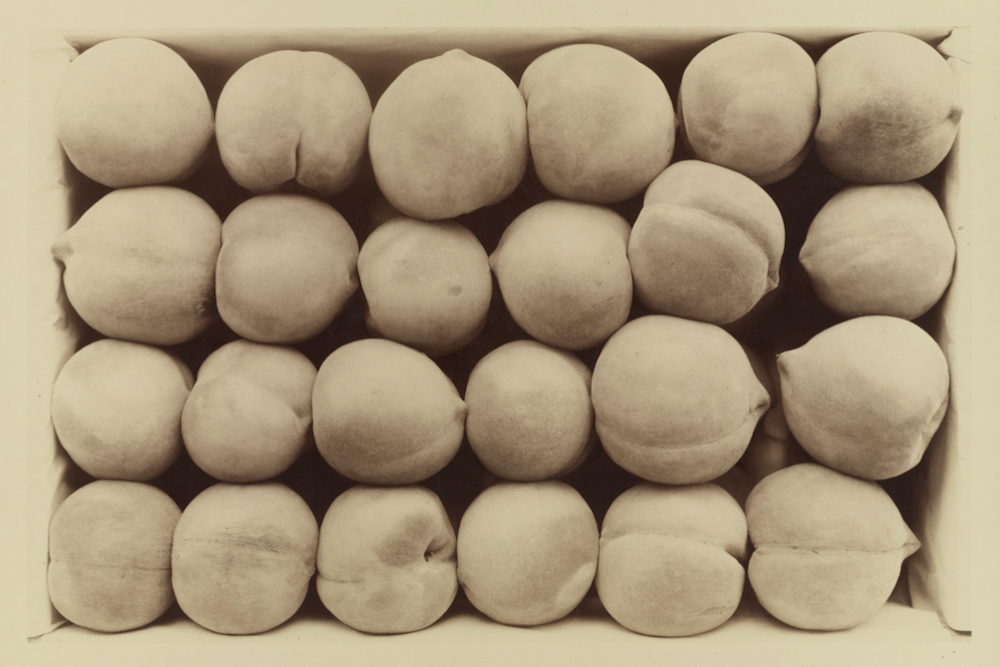
Late George Cling Peaches, a photograph by Carleton E. Watkins. Courtesy of the Museum of Modern Art.
Not my usual route to the market—past
the railroad tracks, then past
Grace Episcopal Church,
its courtyard empty—no men
clasping hands as though agreeing,
finally, to the difficult terms
of some treaty—so I would not
have known it was a peach tree
unless the person who planted it
or someone on the street
told me. Which is not to say
its fruit didn’t look
peach-like—it did…
rather I didn’t read it as such, didn’t
know what I was
seeing, really—from where I stood
the fruit perfect and young
and heavy, at least heavy enough
to bow the branches, though hardly
ready yet to eat. Ripe,
one might say, which, true,
is more precise—precision
a thing of value. Not that
the fruit cares what you call it.
Or stands for anything
other than what time can make
of some small human intervention.
Is no piece of literature.
The peach was simply a peach,
and there for the taking,
which is often said of an object that has gone
unwatched for too long, susceptible
to trespass, which happens
first in the mind, and happened first
because of fruit,
or so says The Good Book
if you believe in such things. Knowledge,
which a poet once called “historical,” too
a trespassing of sorts, the proof of which
perhaps best shown in how one
might punish a slave who had been
taught to read the word beauty or toil
or rest, secretly, and by firelight.
There are things nearly impossible
to forget, having so trespassed,
having badly needed to see up close
this tree fixed in place, its fruit
dangling—there
within reach, though not
the same as being offered.
Tenderness, I have learned,
is only one test
of whether some fruit
has fully ripened. You
press the flesh right here. But for me,
that would mean crossing
half the yard the way a paper boat
might be pushed, by wind, across a pond.



